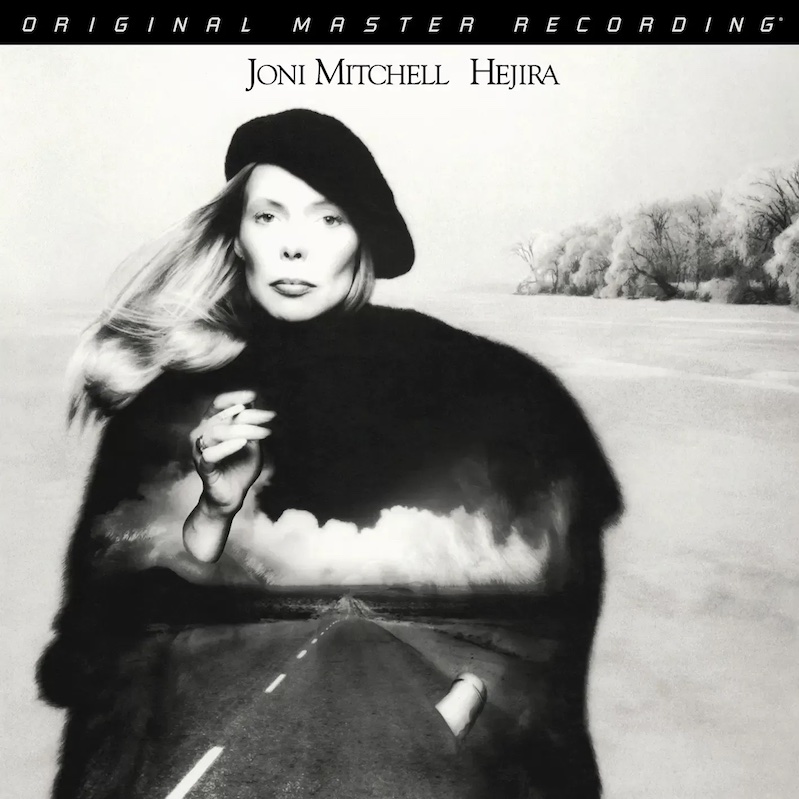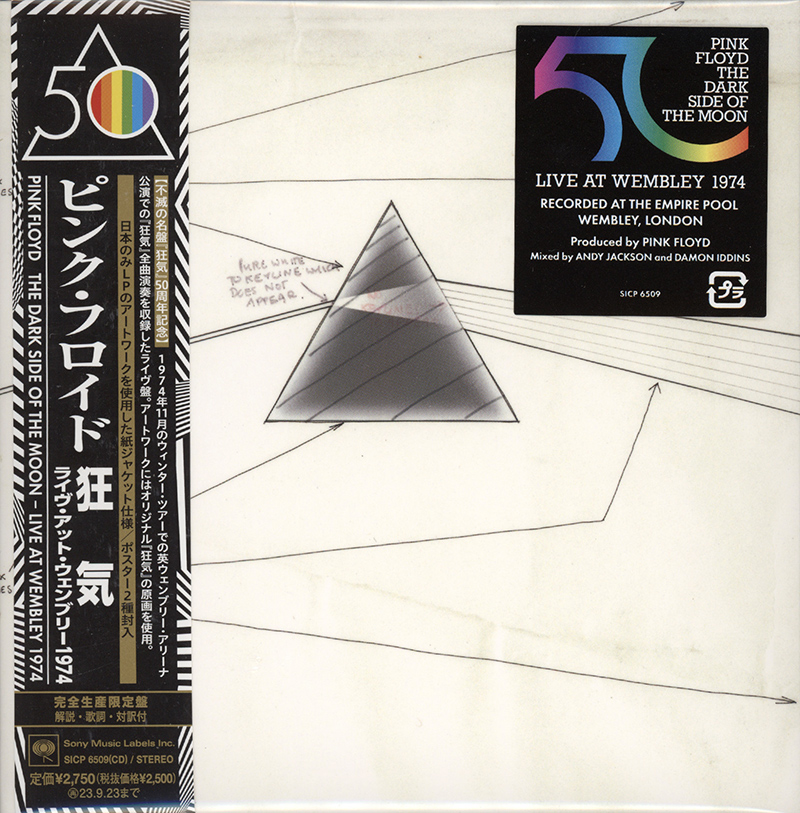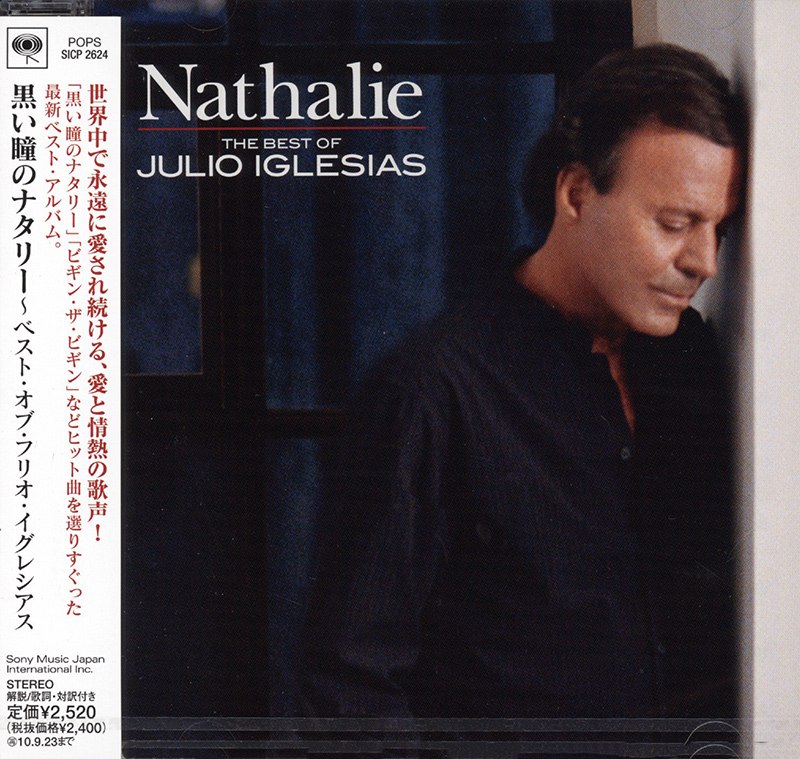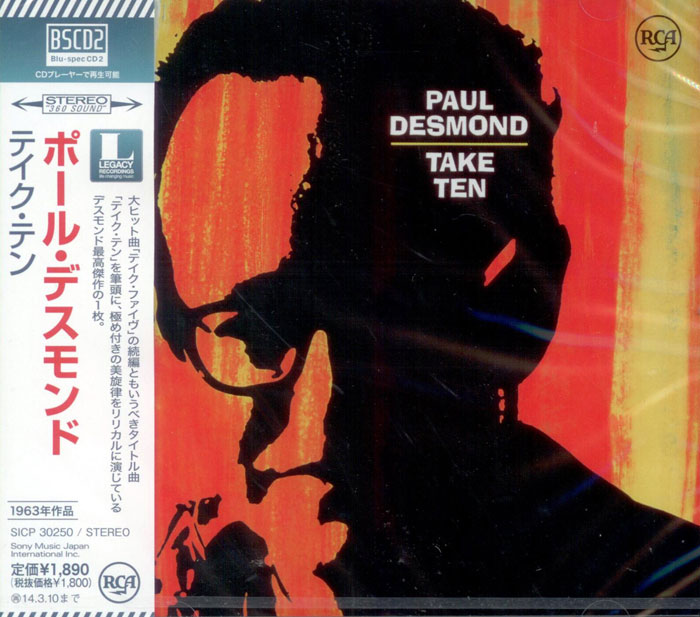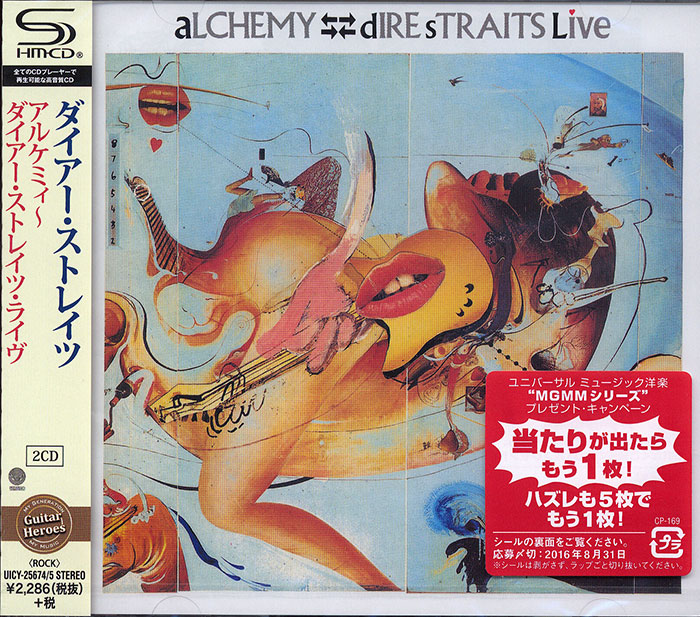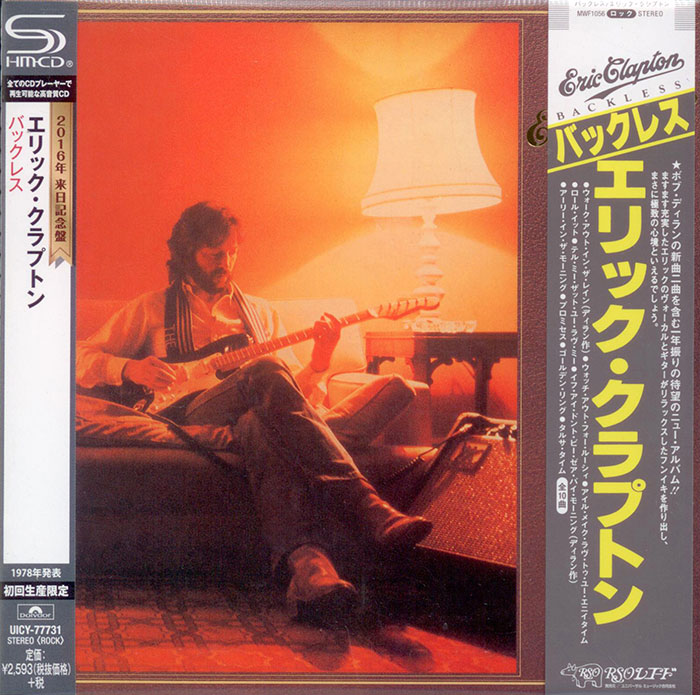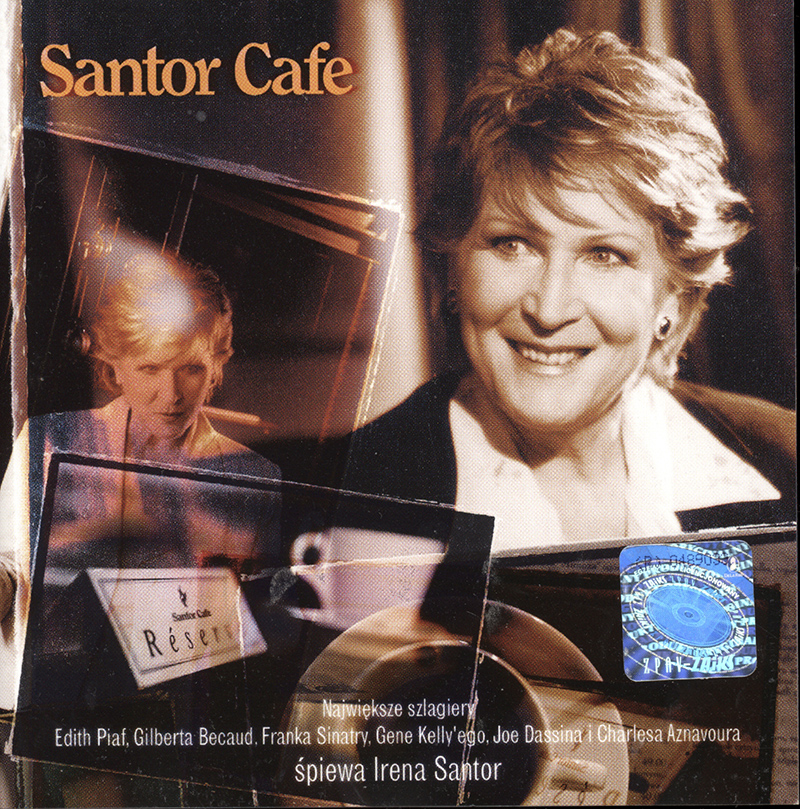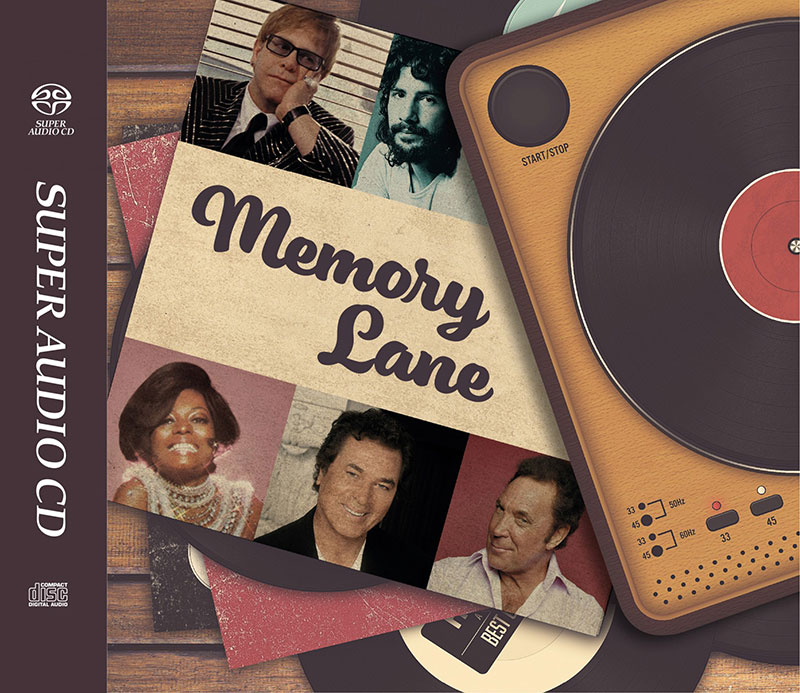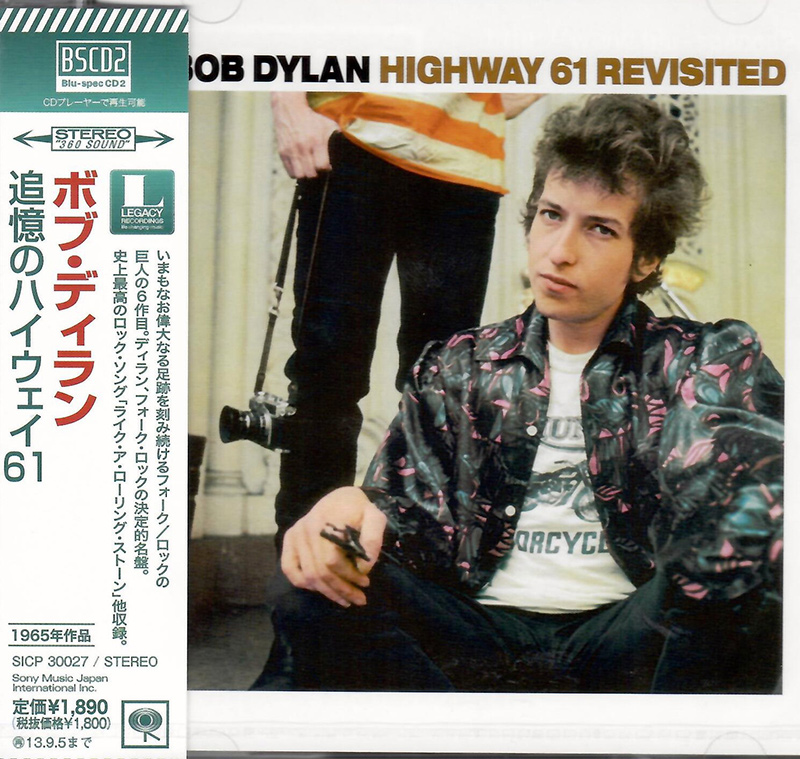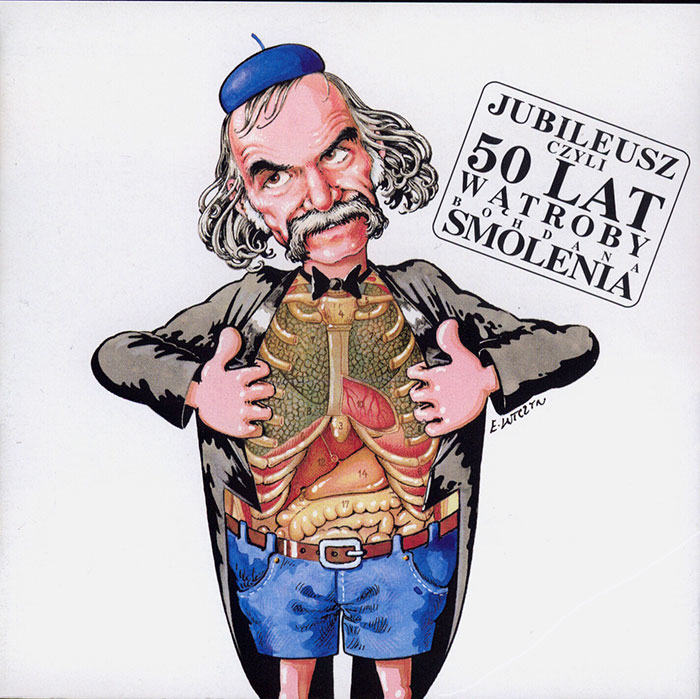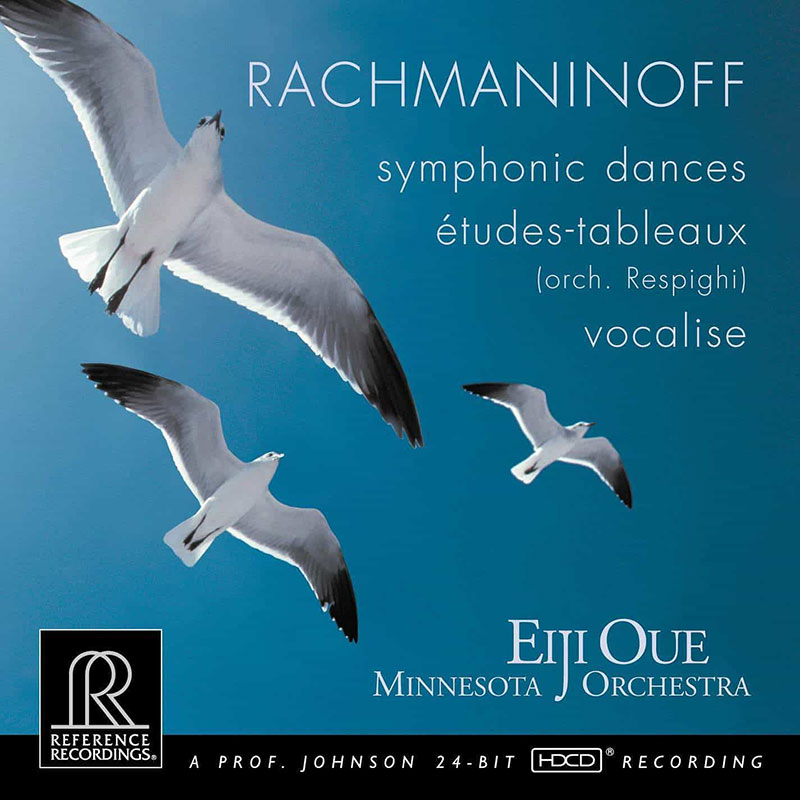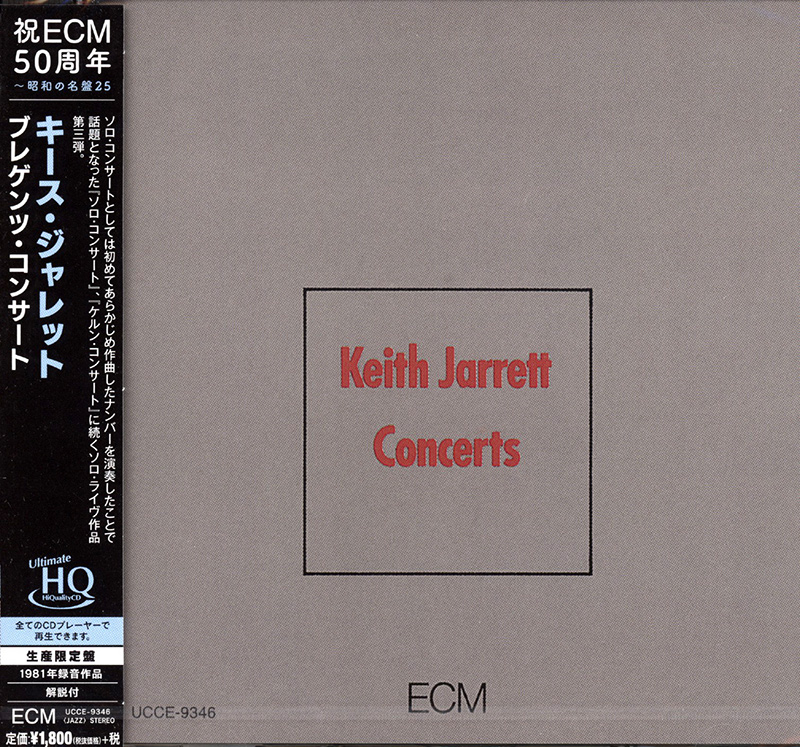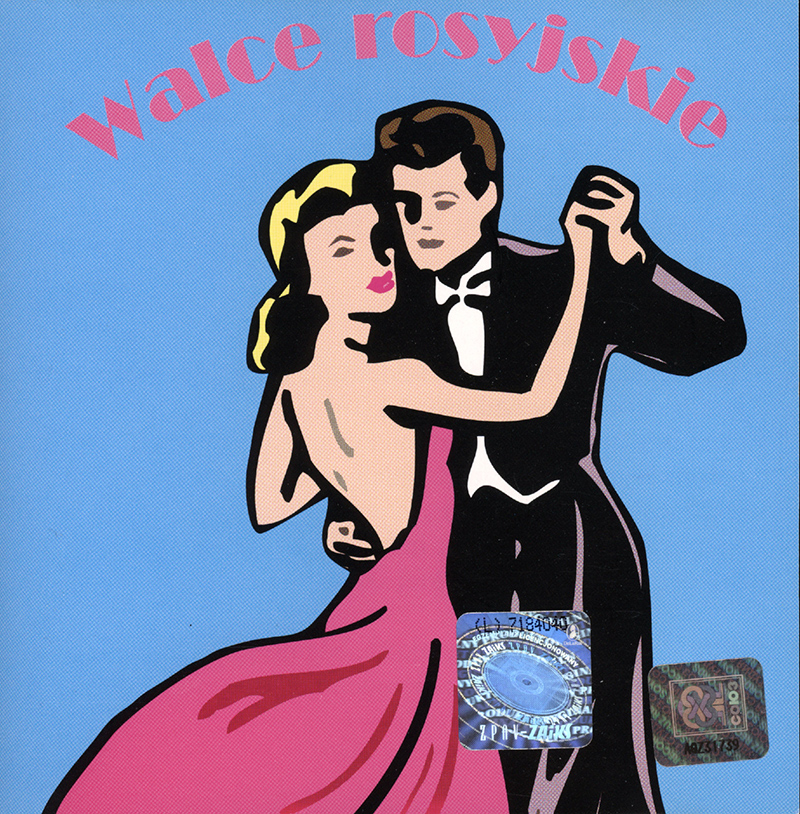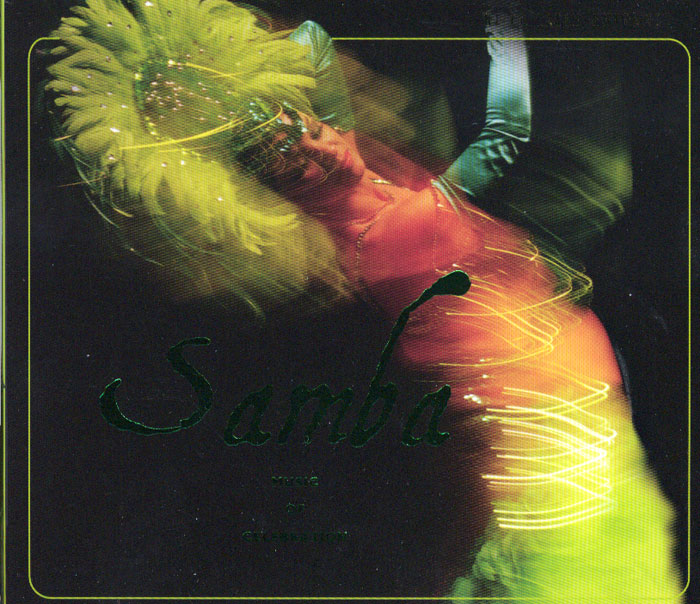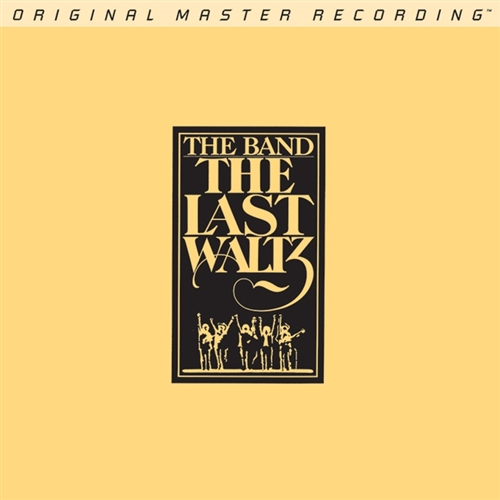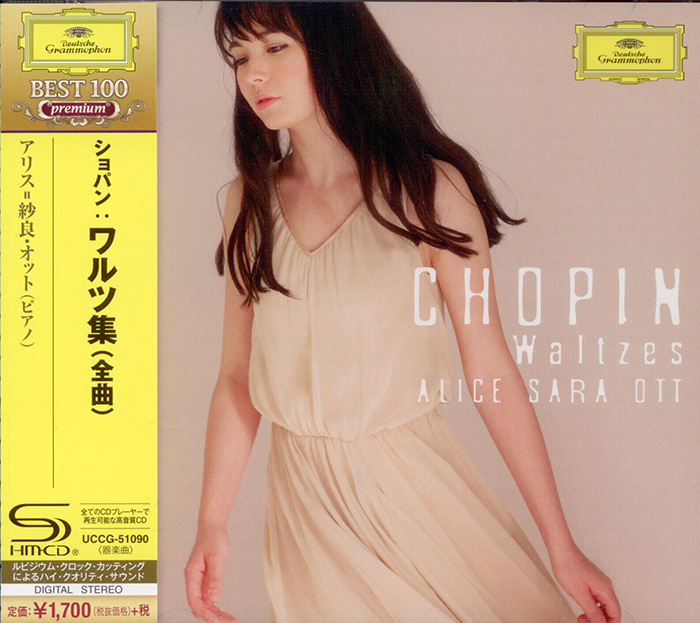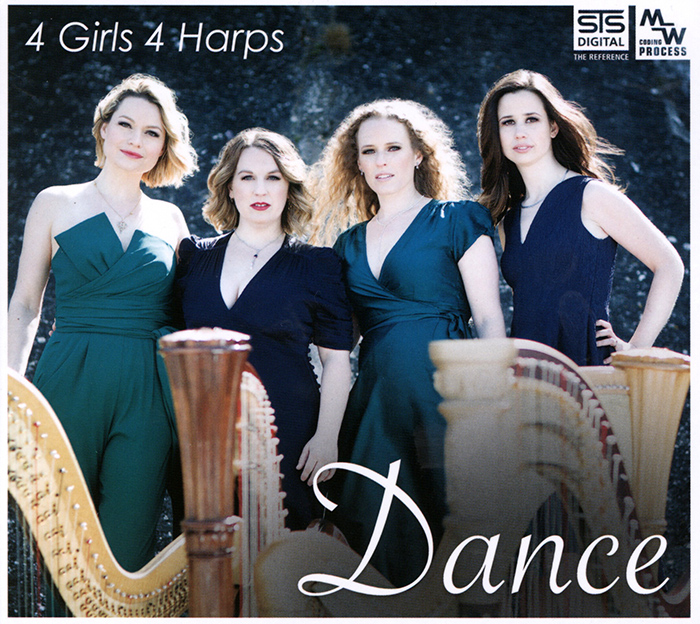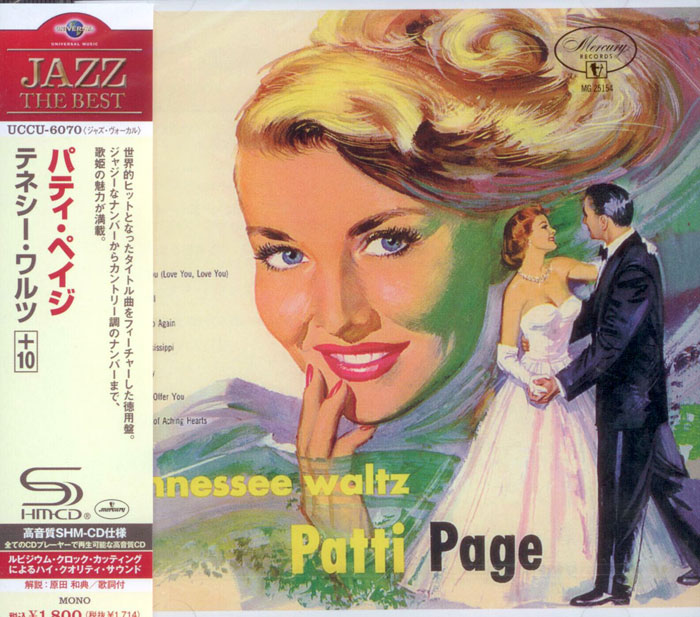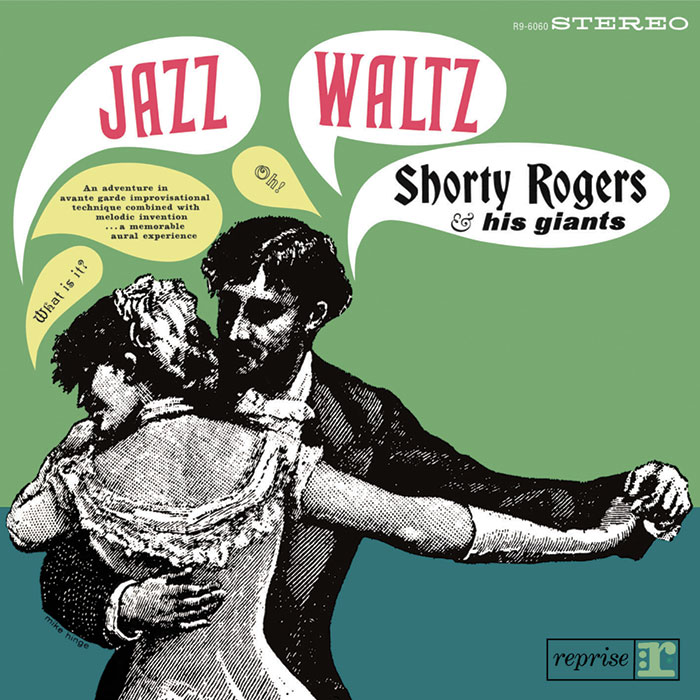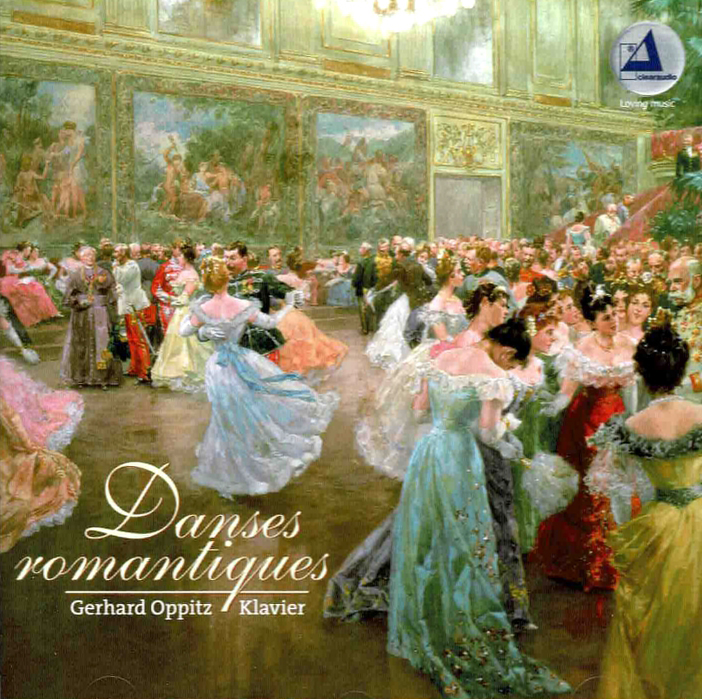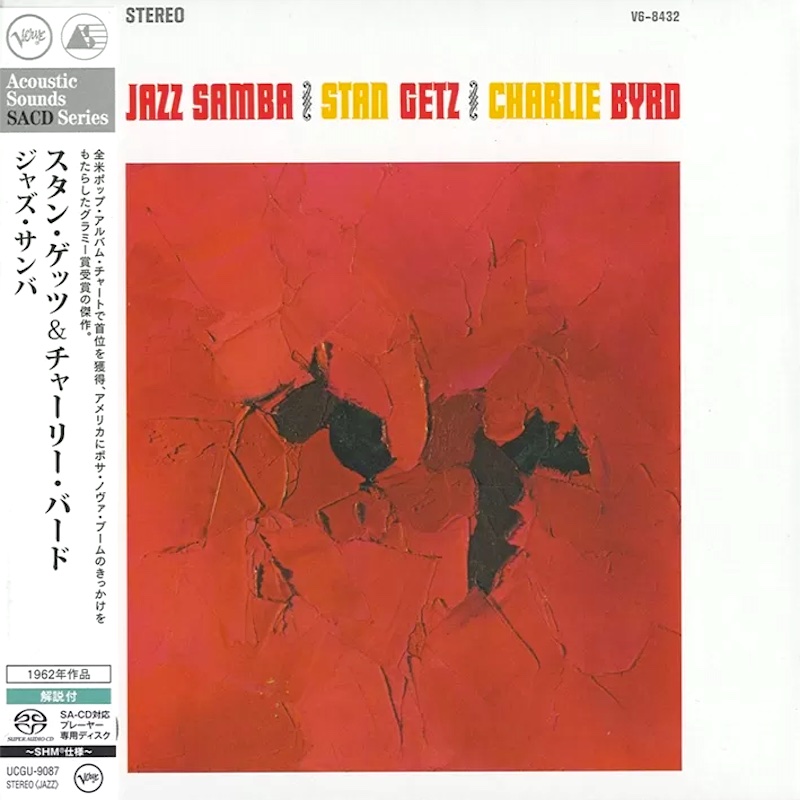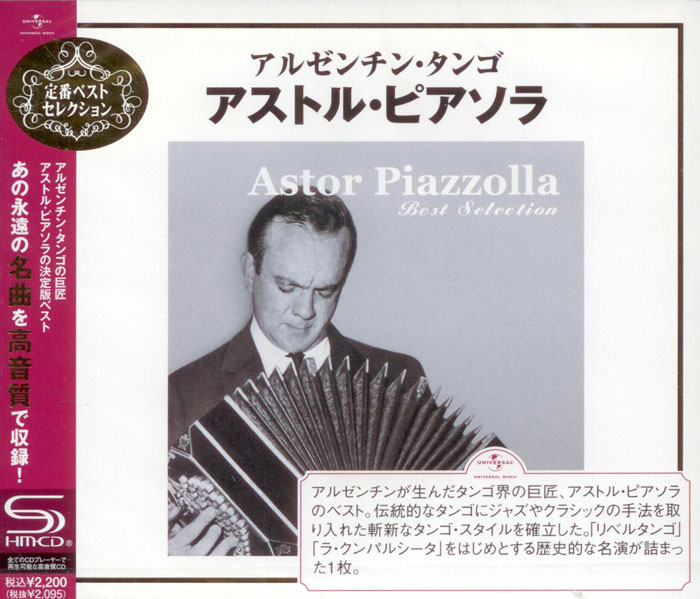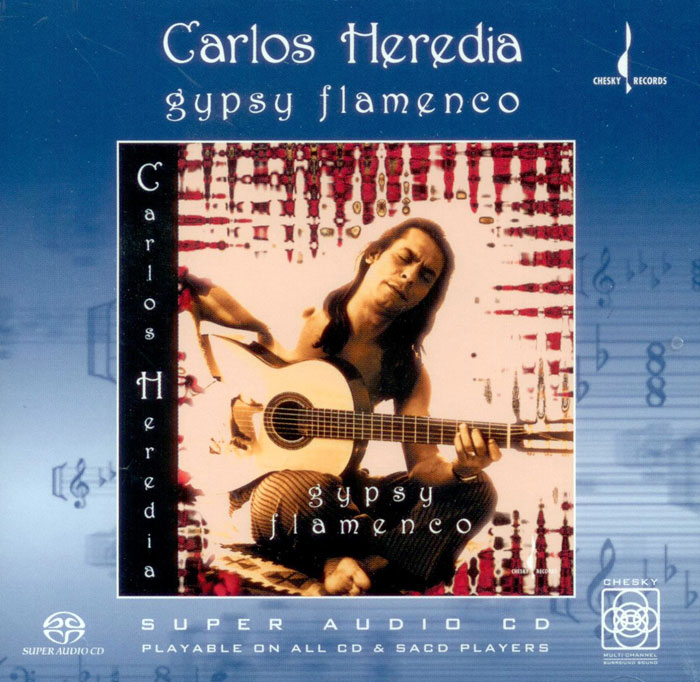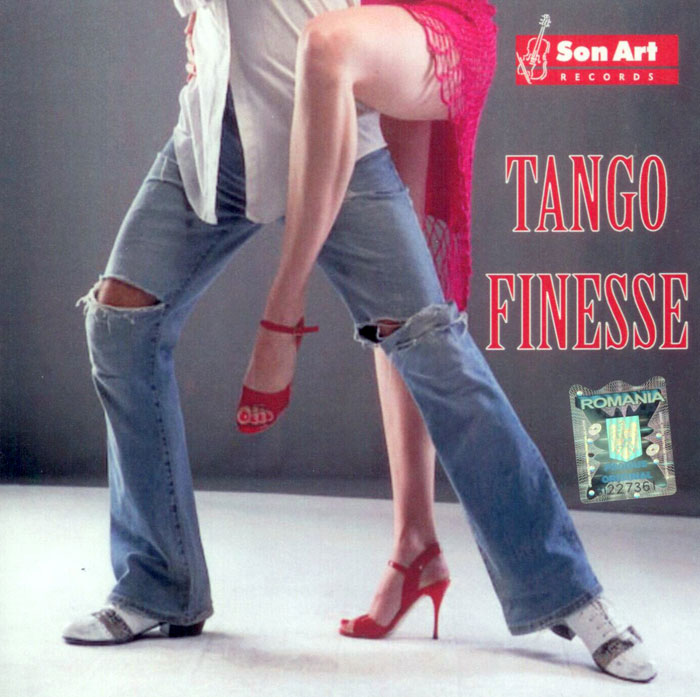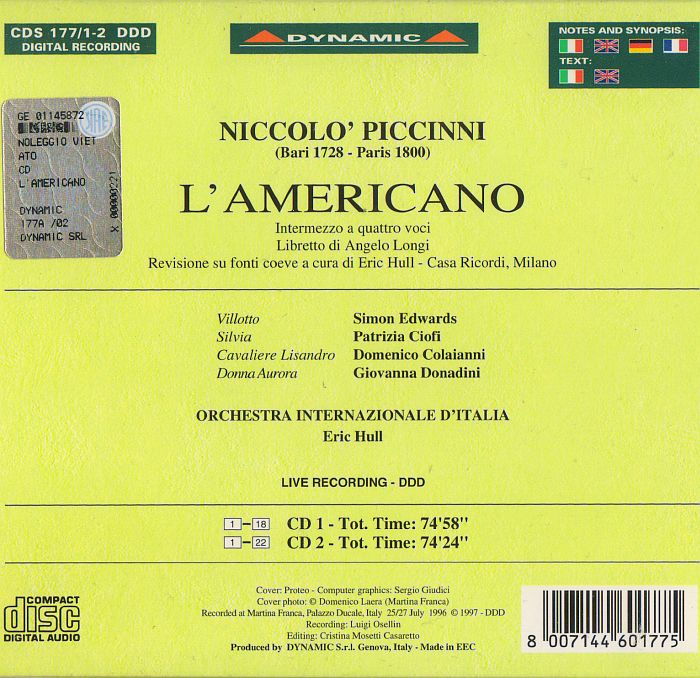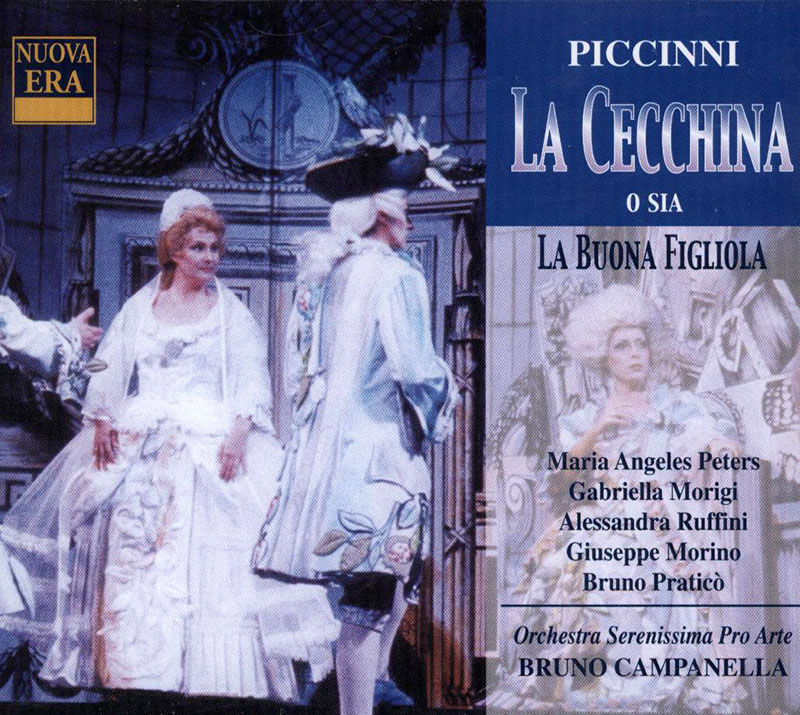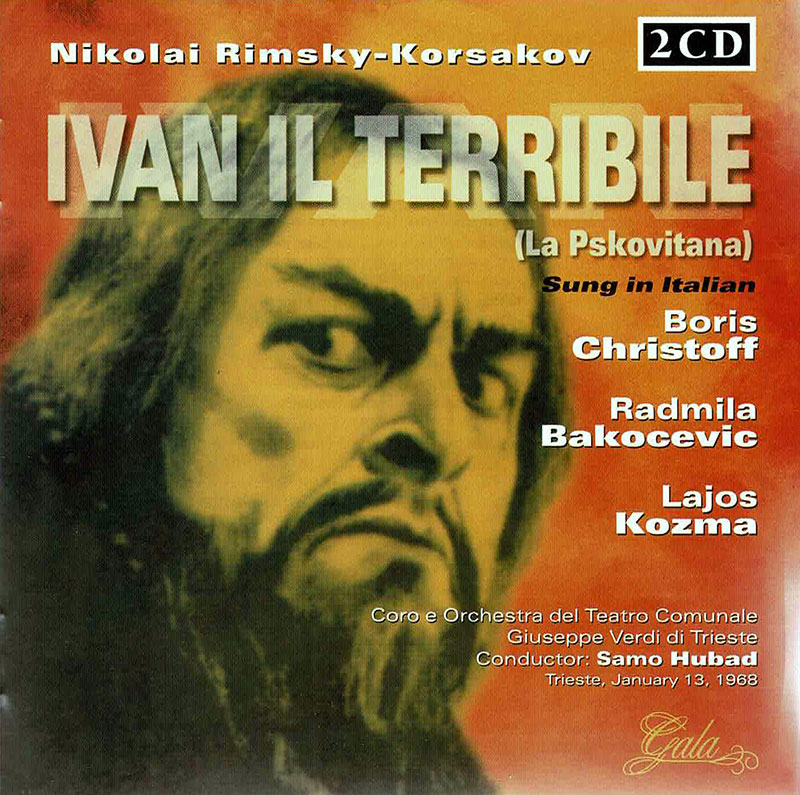Logowanie
Mikołaj - ten to ma gest!
Elton John, The Mamas & The Papas, Cat Stevens, Rod Stewart, Bobbie Gentry, Stevie Wonder, Engelbert Humperdinck
Memory Lane
Edycja Numerowana - 1000 egzemplarzy w skali światowej
RACHMANINOV, Eiji Oue, Minnesota Orchestra
Symphonic Dances / Vocalise
Best Recordings of 2001!!! NAJCZĘŚCIEJ KUPOWANA PŁYTA Z RR!
Karnawał czas zacząć!
Music of Love - Hi-Fi Latin Rhythms
Samba : Music of Celebration
AUDIOPHILE 24BIT RECORDING AND MASTERING
CHOPIN, LISZT, DEBUSSY, DVORAK, Gerhard Oppitz
Dances romantiques - A fantastic Notturno
Wzorcowa jakość audiofilska z Clearaudio
Winylowy niezbędnik
ClearAudio
Double Matrix Professional - Sonic
najbardziej inteligentna i skuteczna pralka do płyt winylowych wszelkiego typu - całkowicie automatyczna
PICCINNI, Patrizia Ciofi, Simon Edwards, Orchestra Internationale d'Italia, Eric Hull
L'Americano
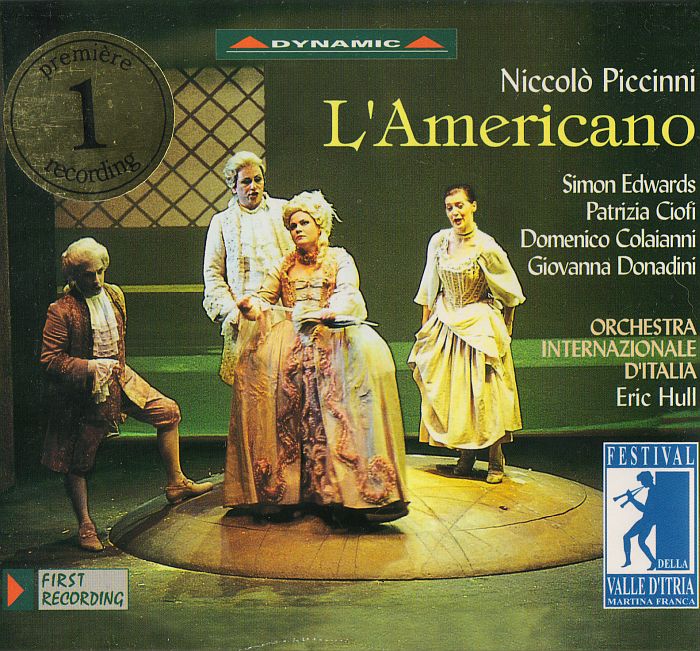
- Simon Edwards - tenor
- Orchestra Internationale d'Italia - orchestra
- Eric Hull - conductor
- Patrizia Ciofi - soprano
- PICCINNI
FIRST RECORDING Niccolo Piccinni's L'Americano which was performed for the first time in modern times at the Festival della Valle D'Itria a Martina Franca on July 27 and 29, 1996, is a brilliant example of a still largely unperformed and unpublished musical repertoire: that of the late eighteenth century Italian farsette and intermezzi. Niccolo Piccinni (born in Bari, 16 January 1728; died in Passy near Paris, 7 May 1800) was one of the major figures in the operatic world in the second half of the eighteenth century. An extremely prolific composer, contemporaries attributed anywhere from 130 to 300 operas to him, of which at least 119 survive. He is largely known in the present day for his greatest success La Cecchina, ossia La Buona Figliola, and for the unfortunate rivalries with composers such as Gluck, Logroscino, Anfossi and Sacchini that the generous and amiable Piccinni unwittingly found himself involved in. L'Americano, first performed in Rome on February 22, 1772 for the Teatro alla Valle's carnival season, is dedicated to the Signora Principessa Donna Ippolita Boncompagni Ludovisi Rezzonico. Referred to as an Operetta Giocosa, an Intermezzo per musica and as a farsetta in the various period sources, it is an audacious broadside comedy by Angelo Lungi that bites off an enormous amount of material to send up. L'Americano's historical context gives further depth to what is already a sense of humour which brilliantly withstands the test of time. From the outset, the very vague term Americano is emblematic of the many levels on which the opera is written. Though obviously falling into the tradition of exotic operas, where any exotic setting or character would suffice, L'Americano has much more far-reaching victims for its humour. In a period when the superiority or inferiority of the indigenous American's nature was being debated by the likes of Rousseau and Voltaire the parody certainly can not be ignoredFrom the outset, L'Americano's setting is almost identical to that of Voltaire's work. As the plots unfold, Voltaire's cutting criticism of society's slavery to a corrupt French court is replaced by the more lighthearted criticism of society's slavery to fashion in L'Americano. The present revision is based on a period manuscript and printed libretto kept at Vienna's Nationalbibliotek, both dating from 1772, for use, according to the printed libretto, at privileged theatres of Vienna. The present revision is a performing edition for use in modern opera houses who, without making evident artistic compromises, require maximum efficiency in producing an opera that would otherwise necessitate abundant extra time and effort to realize. While trying to arrive at the original style and spirit of the piece using philological criteria, the tools used are slightly changed: antiquated musical indications have been translated into modern musical terms that a modern orchestral musician would understand at first sight, and certain articulations and dynamics which would have been instinctual to a period musician have been made explicit and streamlined. The initiative of answering urgent musical questions has been assumed by the editor. Certain categories of changes and corrections may be easily distinguishable (outlined in the preface), and comparison with the earlier version could avoid days of work in consulting critical notes that not even the most conscientious of performers could undertake. This version is of course fully usable by Early Music groups as well, if they so wished.
